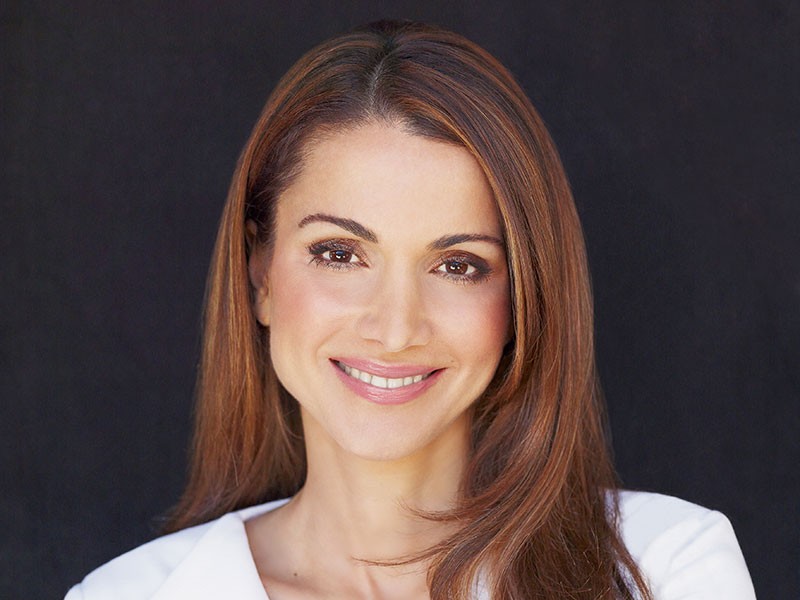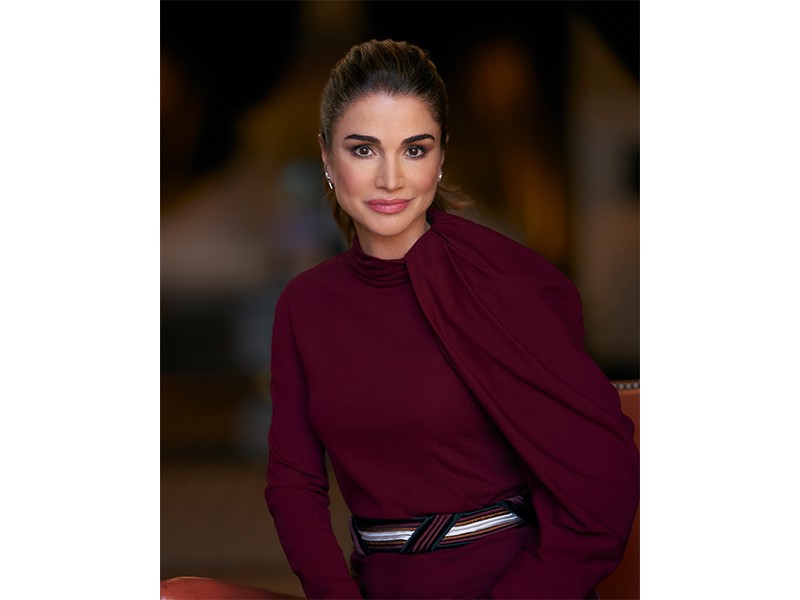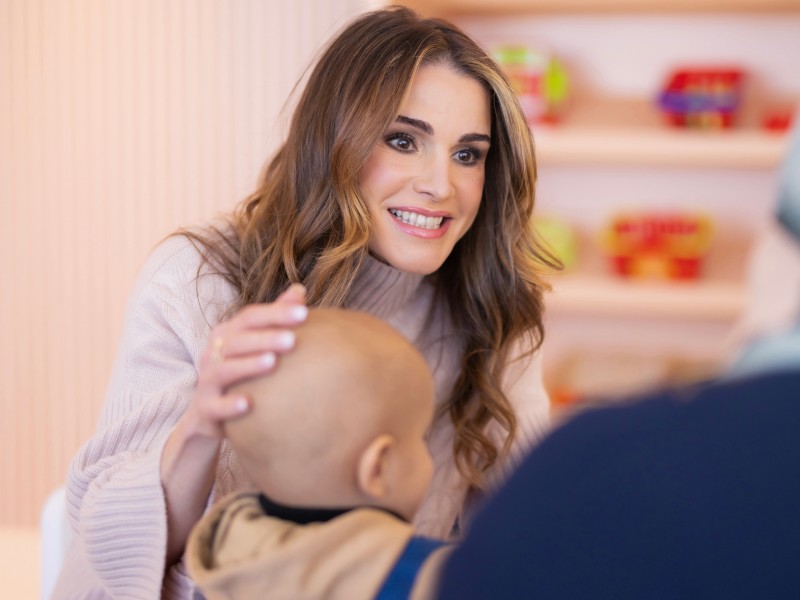Queen Rania's Interview with BBC - 2010

Unidentified BBC presenter: We’ve been hearing a lot this week from Davos where the World Economic Forum has been meeting and as well as all the big economic debates that go on there are always other issues that crop up around the edges. The BBC’s Owen Bennett Jones has been covering the conference for us and he met up with Queen Rania of Jordan who’s in Davos, which is in Switzerland of course, where recently the building of new minarets has been banned. Minarets are the towers of mosques, traditionally used for the call to prayer. And there’s also been a lot of public debate in many European countries about restricting where Muslim women can wear the veil. So does Queen Rania think that this kind of pressure on Muslims could actually backfire and add fuel to the fire of Muslim radicalisation?
HMQ: I believe that our communities are really changing as a result of immigration. Now countries have very diverse cultures within them and the issue of trying to achieve social harmony is really becoming one that is difficult to grapple with. When it comes to decisions like the ones that you mentioned the most important thing is the communication. To really reach out to these groups and explain why those decisions are made so that they don’t feel that they are targeted, or being marginalised or stigmatised in any kind of way. When you have such a diverse cultures within one country it is very important for both sides to realise that they have responsibilities. You have to respect the law of the land and the culture in which you reside and the country has to also integrate these groups and give them the rights, and make them feel that they are part of the system, that they have a chance, that they’re not discriminated against in any kind of way. So both sides have a responsibility. When it comes to issues related to Islam it is important to communicate. It is important to explain that you know in the case of the Burkha it’s the face covering and not the Hijab. In Islam it is widely believed that covering your face is not a religious requirement, but I hope that in many of those governments they don’t touch the sanctity of the Hijab because I am a staunch supporter of every woman’s right to wear the Hijab, just as I am a staunch supporter of every woman’s right to choose not to wear it.
Owen Bennett Jones (OBJ): And you choose not to.
HMQ: I personally choose not to and I hope, and I expect, for my decision to be respected.
OBJ: You call for communication in these European countries and cultures and you must acknowledge that in many Arab countries minority rights are not greatly respected.
HMQ: Then that’s to the detriment of that country. Any country that does not respect the rights of its minorities is going to pay the price eventually, especially in the world in which we live. You cannot have draconian measures any more you know. People gather through social media, through the internet, they can get their voices heard. And you would do much better to heed those voices and to integrate them in to the conversation rather than to try to suppress groups.
OBJ: I guess my point was the injustice felt by what many Muslims would feel were discriminatory policies in Europe doesn’t seem to apply when these people think of their own governments. They seem more critical of Western governments than their own governments.
HMQ: Well you see people that are very critical of their own governments. So that it happens everywhere. And that’s the thing you know nowadays that people can congregate online, they can have the internet is no longer just a place to share information, it’s a place where you share your feelings and your passions and you create groups. You can have activism take place online. So it is important for governments to really listen to the voices of their people and really try to make sure that those voices are... I mean in Jordan we’ve had to deal with this you know. We’ve had many Iraqis come in to Jordan, we have something like half a million Iraqis, and we opened our educational system, our health system, and tried to make them feel at home as much as possible.
OBJ: I must finally just mention this then. There has been a recent court decision in Jordan which has limited the ability of bloggers to blog. Do you regret it?
HMQ: ...and this is a temporary measure while the government works on a cyber crime law. And this is being done in coordination with the IT sector to try to hear from them and see what their concerns are. And their freedom to manoeuvre within the blogging sphere is not just, the cyber crime law will be dealing with a lot of issues, and freedom of expression is only one of them. And the most important thing is that His Majesty said very clearly that no journalist or blogger will be put in prison just for expressing his opinion. So this law was brought in to place temporarily to protect people from libel and defamation.
Featured
Queen Rania's official website
This website does not support old browsers. To view this website, Please upgrade your browser to IE 9 or greater
Your browser is out of date. It has known security flaws and may not display all features of this and other websites. Learn how to update your browser



